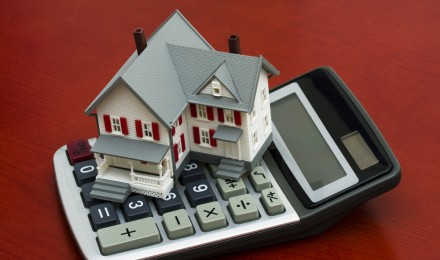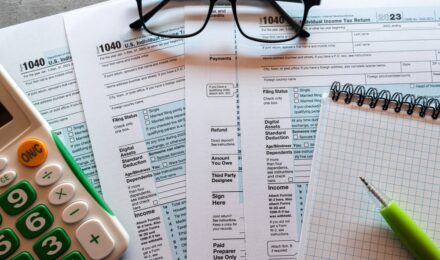It’s the biggest mystery of home buying: how big a mortgage can I afford? Specifically, how much can I afford to spend on a house?
Buying a house is a major decision. And as excited as you might be to close on your new place, you don’t want to get in over your head. This can happen if you buy more house than you can afford, and if you can’t keep up with your home loan payment, there’s a chance that the lender will take your house.
Of course, this is worst-case scenario. For the most part, a lender won’t approve you for more than you can afford on a monthly basis. But what if you haven’t met with a lender and you’re trying to figure things out for yourself?
A mortgage calculator can provide a pretty good estimate of how much you can spend on a house. These calculators estimate your payment based on a specific price, interest rate and term. It’s a good starting point, and some calculators take into account homeowner’s insurance, taxes and private mortgage insurance. However, to benefit the most from this online tool you need a price in mind.
Calculators can work if you’ve found a house and know the asking price. But if you’re just starting the buying process and haven’t located a property, it’s kind of hard to use a calculator. No worries. There is another way to figure how big a mortgage you can afford.
Mortgage lenders take numerous factors into account when deciding if qualify for a mortgage, and how much you can spend. Your credit history is a big factor, as your payment habits are a pretty good indicator of how well you’ll repay your mortgage debt. It goes without saying that a good-credit applicant who always pays his bills on time is less likely to default. But this isn’t the only factor. Lenders also use a housing expense ratio to determine affordability.
To put it plainly, this is your monthly housing cost compared to your monthly income. The rules regarding your housing ratio vary depending on the type of mortgage loan. For example, conventional mortgage lenders allow borrowers to spend up to 28% of their gross monthly income on mortgage payments, whereas FHA mortgage loans allow a ratio up to 31%.
Let’s say you’re applying for a conventional mortgage loan and you gross $3,000 a month. Given this scenario, you can afford a payment up to $840 (3000 x .28).
Of course, this calculator doesn’t take into account other expenses you might have. A mortgage lender uses the ratio as a guide when assessing affordability. Understand, however, that your lender will also evaluate how much you owe elsewhere, such as credit cards, auto loans, student loans and personal loans. Therefore, only a mortgage pre-approval can accurately determine affordability – but even these aren’t perfect.
Lenders can only base affordability on expenses listed on your credit report, and like most people, you probably have additional expenses that impact how much you can pay for a house. For example, a lender doesn’t know how much you pay for daycare or insurances each month, nor can a lender accurately know your transportation costs.
Just because a lender approves you for a certain amount doesn’t mean you have to purchase a house at this full amount. You know your finances better than anyone. After calculating your housing ratio, put all your monthly expenses on paper, and then decide whether the house payment fits into your budget.
It’s the biggest mystery of home buying: how big a mortgage can I afford? Specifically, how much can I afford to spend on a house?
Buying a house is a major decision. And as excited as you might be to close on your new place, you don’t want to get in over your head. This can happen if you buy more house than you can afford, and if you can’t keep up with your home loan payment, there’s a chance that the lender will take your house.
Of course, this is worst-case scenario. For the most part, a lender won’t approve you for more than you can afford on a monthly basis. But what if you haven’t met with a lender and you’re trying to figure things out for yourself?
A mortgage calculator can provide a pretty good estimate of how much you can spend on a house. These calculators estimate your payment based on a specific price, interest rate and term. It’s a good starting point, and some calculators take into account homeowner’s insurance, taxes and private mortgage insurance. However, to benefit the most from this online tool you need a price in mind.
Calculators can work if you’ve found a house and know the asking price. But if you’re just starting the buying process and haven’t located a property, it’s kind of hard to use a calculator. No worries. There is another way to figure how big a mortgage you can afford.
Mortgage lenders take numerous factors into account when deciding if qualify for a mortgage, and how much you can spend. Your credit history is a big factor, as your payment habits are a pretty good indicator of how well you’ll repay your mortgage debt. It goes without saying that a good-credit applicant who always pays his bills on time is less likely to default. But this isn’t the only factor. Lenders also use a housing expense ratio to determine affordability.
To put it plainly, this is your monthly housing cost compared to your monthly income. The rules regarding your housing ratio vary depending on the type of mortgage loan. For example, conventional mortgage lenders allow borrowers to spend up to 28% of their gross monthly income on mortgage payments, whereas FHA mortgage loans allow a ratio up to 31%.
Let’s say you’re applying for a conventional mortgage loan and you gross $3,000 a month. Given this scenario, you can afford a payment up to $840 (3000 x .28).
Of course, this calculator doesn’t take into account other expenses you might have. A mortgage lender uses the ratio as a guide when assessing affordability. Understand, however, that your lender will also evaluate how much you owe elsewhere, such as credit cards, auto loans, student loans and personal loans. Therefore, only a mortgage pre-approval can accurately determine affordability – but even these aren’t perfect.
Lenders can only base affordability on expenses listed on your credit report, and like most people, you probably have additional expenses that impact how much you can pay for a house. For example, a lender doesn’t know how much you pay for daycare or insurances each month, nor can a lender accurately know your transportation costs.
Just because a lender approves you for a certain amount doesn’t mean you have to purchase a house at this full amount. You know your finances better than anyone. After calculating your housing ratio, put all your monthly expenses on paper, and then decide whether the house payment fits into your budget.







